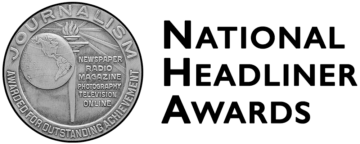Kathleen Hall Jamieson, director of the Annenberg Public Policy Center, spoke at the John F. Kennedy Presidential Library and Museum‘s Kennedy Library Forum on “Reality and Truth in Contemporary Journalism.” The December 11 panel, moderated by Boston College history professor Heather Cox Richardson, also featured Dan Balz of The Washington Post, and Tom Nichols, author of “The Death of Expertise: The Campaign Against Established Knowledge and Why It Matters.”
Jamieson told the panel that when studying political campaigns, particularly during the 1988 presidential campaign between George H. W. Bush and Michael Dukakis, she noticed that “the press would not adjudicate the contested claims” even when there was a “knowable reality” to the claims being made. She said that FactCheck.org, which she co-founded in 2003, was first and foremost an attempt “to speak to journalists to say, if we put enough good journalists together, we can perhaps anticipate those exchanges, check them as a good journalist would, and have those checks available for journalists as they write in real time,” in order to improve the accuracy of reporting.
The group also discussed the prevalence of “fake news” and the impact of increasing polarization on mainstream media and other sources of knowledge. Jamieson discussed her dislike of the phrase “fake news,” noting that the term “delegitimizes the word ‘news’ ” because “if it’s fake it’s not news.” She also discussed the problem in labeling all erroneous statements as “lies” without knowing the intention behind the statement and voiced concern over the “lack of respect for the evidentiary process,” adding: “If someone is lying, they know the reality and they’re deceiving. If they don’t know the reality, they’re even more dangerous.”
Jamieson said that “systematic attacks” on the institutions set up to be the custodians of knowledge — such as the General Accounting Office, Bureau of Labor Statistics and NASA — and attacks on other forms of expert opinion and evidence prevented reality-based arguments from being made. She also spoke about an experiment conducted with APPC distinguished research fellow Bruce Hardy on overcoming end-point bias. “It’s possible, if evidence is presented carefully in a neutral voice and people aren’t driven into their partisan enclaves, that the analytic person who asks questions of the evidence will draw an appropriate inference,” she said.

